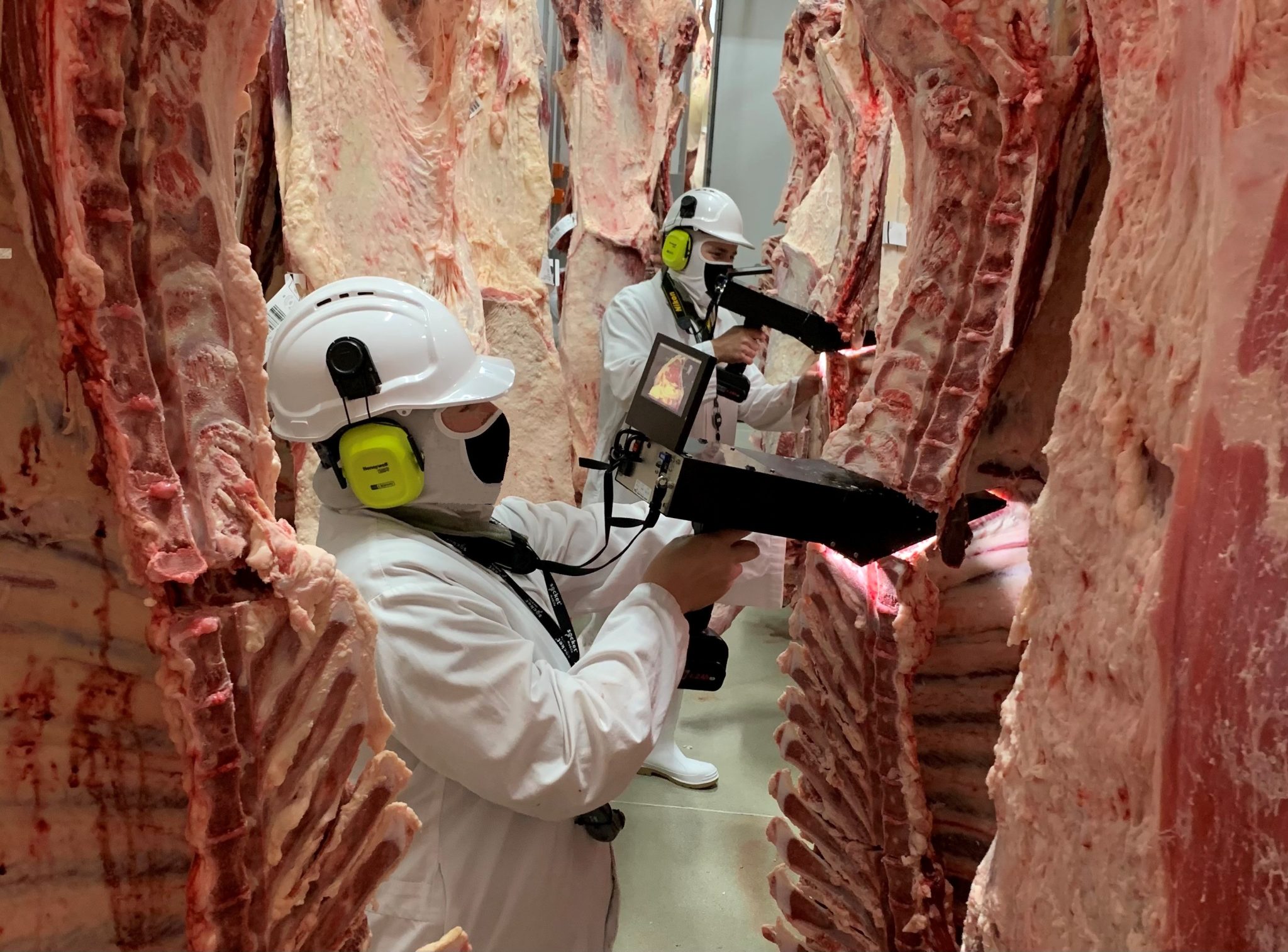18 SEPTEMBER 2024: ACC’s Cannon Hill processing facility is hosting a Nuffield scholar undertaking an international study into meat processing technology.
James Carter, 26, is studying how technology has the potential to drive profit, production and sustainability of Australia’s beef supply chain.
He will be using his Northern Pastoral Scholarship to compare Australian technology with international examples – and bring his learnings back to Australia. His findings could see more automation and AI boosting yields and margins for producers and processors.
Prestigious Nuffield scholarships are awarded annually to young Australians to study specific aspects of agriculture.

Pictured (L to R): Paul Gibson and James Carter.
Seventh-generation cattle producer James plans to leave for overseas next March and will spend two years completing his study. After visiting Asia he plans to visit Denmark and Germany, two countries prominent in developing measurement technology.
He said: “I am hoping to see how technology can enable breeding decisions, leading to better carcase yields to benefit both producers and processors.”
His work aims for more than just more kgs per carcase. “Technology can help drive sustainability improvements, harvesting more red meat from each carcase; packing more meat into each box with less waste; driving down the cost of production and resulting in more consistent carcases,” he said.
“This, in turn, will hopefully be a catalyst for driving more automation and AI in processing facilities.
“There is huge potential for the industry to drive higher profits through better breeding decisions, and these can be enabled by technology,” he said.
James hails from ‘Lake Edward’, the family’s NSW property and one of Australia’s oldest registered cattle fire brands. Now Brisbane-based, he is the assistant production manager at Australian Agricultural Company (AACo) and is familiar with ACC’s processing operations.
He said: “I’m looking forward to studying how the data and information that underpins decisions can be communicated back to producers through a platform, allowing an increase in profitability from paddock to plate to benefit each part of the supply chain.”
James said this will likely also help the industry become more sustainable.
“We will be harvesting more usable red meat from each carcass through better muscle conformation, while maintaining eating quality” he said.
“Through technologies like yield cameras we can build an understanding of what ‘good’ looks like, and we can share that information with a producer or feedlot and begin to make decisions to reach those better outcomes.
“We could even see genetic decisions made based on the predicted potential amount of saleable red meat from a carcass.
“As an industry we need to continue to find ways to evolve and invest in new technologies not only to stay competitive in the market, but also to share and promote what we are doing as an industry in a positive and honest narrative,” James said.
“We can than continue to better educate consumers and the wider community on the beef industry.”
ACC’s R&D general manager Paul Gibson said: “The work will assist the industry, helping it to optimise technology use to ensure we meet compliance and lift performance. The data we gain will help drive genetic selection.”

